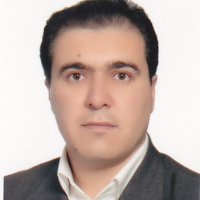Presenting the model of professional development of lecturers of the University of Applied Science with the approach of the Fourth Generation University
Knowledge is considered the main pillar in educational systems and teachers are the driving force of knowledge production, believing in the fundamental role of education in the development of society and the role of universities in regional development and the need for universities to adapt to the latest technological changes. And knowledge, professional development and increasing the knowledge and skills of lecturers seems to be necessary. The aim of the current research is to provide a model of professional development of lecturers of the University of Applied Sciences with the approach of the fourth-generation university.
The present study is of qualitative type and its method is research synthesis. The data have been collected by reviewing the literature and theoretical background through a systematic search of the library resources of theses and articles in the databases. From ERIC, ScienceDirect, Scopus, Springer, Magiran, IranDoc, domestic researches in 2016-1403 and foreign researches in 2018-2024 have been identified and 53 researches have been selected for review and analysis. To analyze the data, the content analysis method of coding and categorization has been used. To verify the validity of the findings, the reliability criterion of peer description has been used to ensure the reliability of social adequacy, for the verifiability of writing reflective notes and purposeful sampling has been used.
Based on the findings of the research, the professional development of university lecturers in three dimensions of knowledge (specialized knowledge, information technology knowledge, educational knowledge), character (individual ethics, organizational ethics) and action (interpersonal communication, intra-organizational communication, external communication) organizational) can be separated.
Politicians and educational planners can use the derived conceptual model to take appropriate measures for the professional development of teachers and to improve the quality of education. Teachers will also be able to use the existing model to increase their competencies and update their knowledge and skills. Take advantage of what is suggested. By implementing empowerment and knowledge enhancement programs, working in research centers, science and technology parks, and professional development centers, and membership and cooperation in scientific committees and associations, provide the professional development and growth of themselves and the organization.
-
Structural modeling of factors affecting organizational forgetfulness (Case study in Industry, Mining, and Trade Organization)
Hossein Davoudi, *, Asgar Nakhostin Goldost
Journal of Future Studies Management, -
Structural equation modeling of emotional leadership relationship in organizational trust, organizational learning and organizational innovation
Marziyeh Moosavi Bideleh*, , Tooran Soleymani
Journal of Teaching and Learning Research,


